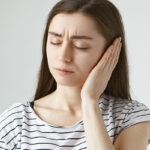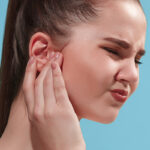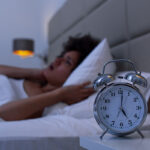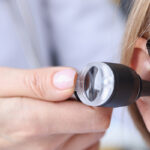Could Tinnitus Be Causing My Insomnia
Absolutely!
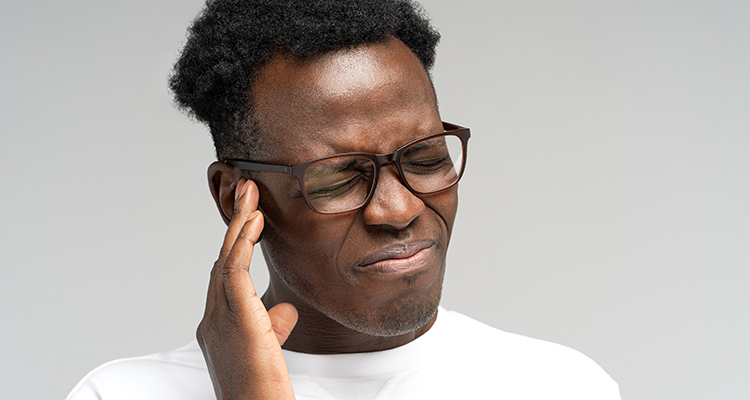
It is common for people with tinnitus to experience sleep issues, like insomnia. However, it is important to understand that “sleeplessness” is universal, which means people, regardless of health status, can experience it. Because sleep issues are fairly common, benzodiazepines are usually prescribed as sleep aids to struggling insomniacs.
What are benzodiazepines? Well, benzodiazepines, also known as “benzos” are highly addictive, psychoactive prescription medications used to treat symptoms of insomnia, such as: “sleeplessness,” nocturnal awakenings, an inability to fall asleep, restlessness, daytime sleepiness, etc. “Benzos” attach to your gamma-aminobutyric acid-A (GABA-A) brain receptors, affecting your central nervous system (CNS), making the nerves in your brain less reactive to stimulation.
As a result, you become calmer and more relaxed, so you can fall peacefully asleep. The most common benzodiazepines used to treat insomnia are: Prosom, Dalmane, Restoril, Xanax, and Halcion. “Benzos” should only be used short-term and with caution. What happens if I take “benzos” long-term? You could be dependent on them to sleep. More specifically, you may find it nearly impossible to sleep without them. And, because “benzos” are opioids, you can develop a prescription drug addiction if you take them too long.
The good news is there are other “less risky” ways to get a good night’s sleep, such as using melatonin supplements, sipping on valerian root tea, ingesting THC-based gummies (i.e., CBD, Delta-8, or Delta-9), or taking OTC sleep aids (i.e., Unisom), getting more exercise, changing your diet, developing a consistent bedtime routine, seeking cognitive-behavioral therapy – for insomnia (CBT-i) or acceptance commitment therapy (ACT), meditating and/or even investing an online sleep program, like Somnus Therapy.
Note: Research suggests that the effects of COVID-19 (i.e., isolation and social distancing) have led to an uptick in stress, which can trigger or exacerbate insomnia in people, who are already struggling with tinnitus.
Content
What is Tinnitus?
Well, if you experience ringing, roaring, buzzing, hissing, drilling, static, blowing, booming, whistling, crackling, popping, or humming in one or both ears, it could be tinnitus, an auditory condition. This sound may be faint or deafening, and it may occur in one ear at a time or both ears simultaneously. Keep in mind that tinnitus can present in different ways.
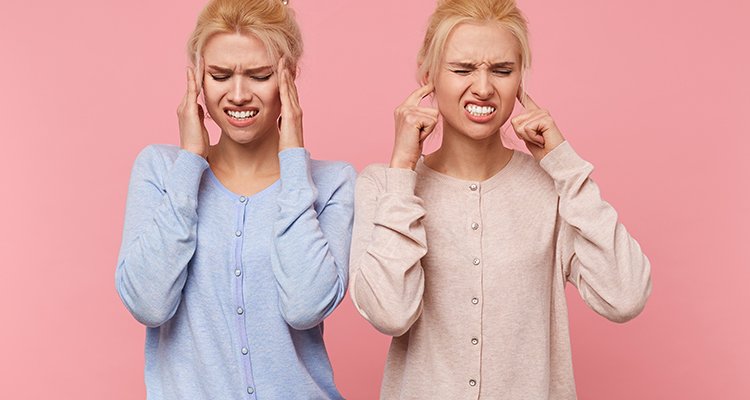
However, if you keep hearing a continuous sound, but cannot find the external source of it, you may be dealing with tinnitus. Tinnitus is usually temporary or acute, although, in rare cases, it can reoccur or be long-lasting (chronic). So, if you are struggling with tinnitus and it is keeping you up all night – you are not alone. In fact, according to a 2016 study, approximately 25 million people experience tinnitus (for at least 5-minutes) each year.
Moreover, experts suggest that almost 40% of people with tinnitus are bombarded with some type of noise in one or both ears at least 80% of their day. Research also suggests that approximately 90% of people, who have tinnitus, also experience some degree of temporary or long-term hearing loss. It also appears that this condition worsens as a person ages. For instance, studies suggest that people, between the ages of 65-84, have a 27% chance of developing tinnitus.
Note: You can still have tinnitus, even if you do not hear the noise every day all day long. In fact, many people with the condition experience intermittent tinnitus. In other words, the noise may come and go or even switch ears.
How Can I Tell If I Have Tinnitus?
Approximately, 25% of people with tinnitus report hearing loud noises in one or both ears.

If you have been hearing sounds that do not appear to come from an outside source, such as a car horn, music, a barking dog or a meowing cat, an air conditioning or heating unit, a refrigerator motor, washing machine or dryer, etc., you may have tinnitus.
Although many people with tinnitus experience the standard “ringing in the ears,” this condition may encompass a variety of symptoms, such as: buzzing, whizzing, whistling, or whirling, hissing, static noises that resemble “white noise,” humming, drilling, booming, popping and cracking, and/or “phantom noises” (i.e., a non-existent barking dog, crying child, beeping car horn, etc.). You may even hear what appears to be music playing inside of one or both ears.
Note: Understand that when you have tinnitus, you are the only one who can hear the noise.
I Occasionally Experience Tinnitus – Is That Normal?
Possibly…
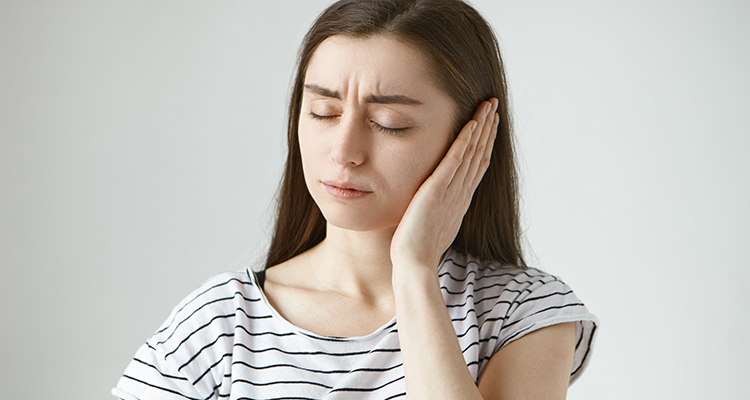
The truth is it is normal to occasionally experience tinnitus. For instance, you may experience buzzing, popping and cracking, or ringing in your ear or ears, after being in an extremely loud environment, like a dance club, movie theater, warehouse or construction zone, or concert, and entering a quieter one, such as a library, school or work environment, your home, a church, or doctor’s office. However, if the noises persist, reoccur, or worsen, it is important to consult your doctor for a hearing evaluation.
Note: Being exposed to loud noises can lead to tinnitus and hearing loss.
What Could Be Causing My Tinnitus?
Studies suggest that tinnitus and hyperacusis can, and often do, occur together. In fact, a 2013 study found that approximately 30% of people with tinnitus also suffer from hyperacusis.
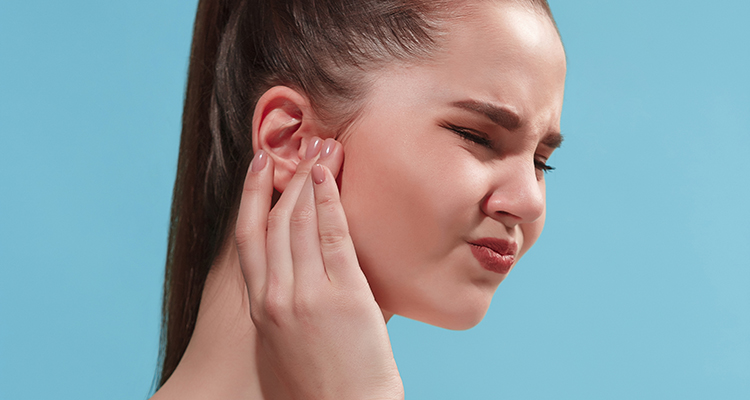
The following factors can contribute to tinnitus:
- Hearing problems (i.e., hearing loss not attributed to hyperacusis)
- Earwax accumulation
- Exposure to extremely loud noises
- Ear structure abnormalities
- Ear or sinus infections
- TMJ
- Ear, neck, and head injuries
- Female hormonal imbalances
- Heart disease
- Thyroid disorders
- Medications (i.e., diuretics, stimulants, antibiotics, high doses of aspirin, aspirin/caffeine combinations, like Excedrin, antidepressants, chemotherapy drugs, etc.)
Note: Although similar, hyperacusis (hearing loss) and tinnitus (hearing noises that do not have an external cause) are separate conditions. However, it is common to experience tinnitus and hyperacusis simultaneously. Understand that people with hyperacusis can be extremely sensitive to environmental noises like honking horns, roaring machines, clanking tools, and car motors. But they can be especially impacted by piercing sounds like the screeching brakes, crying babies, clattering silverware, dishes, glasses, etc
Is There a “Cure” for Tinnitus?
Not at this time…
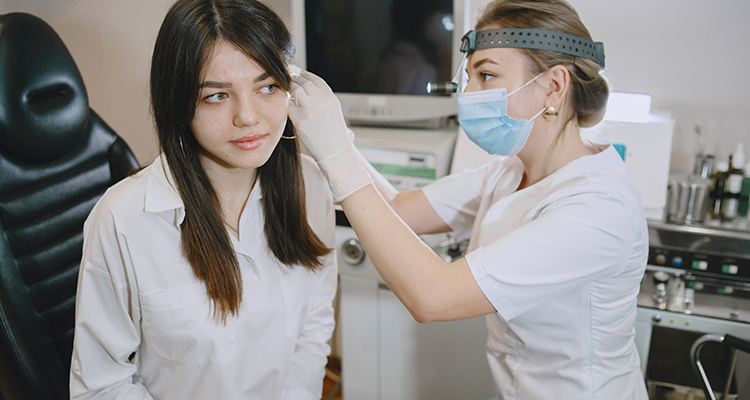
Even though there is no cure for tinnitus at this time, treatment can reduce its symptoms (i.e., buzzing, popping and cracking, humming, etc.). However, the first step is to complete a physical exam – one that also includes a full-on hearing assessment. The goal of this step is to help your doctor better understand what is triggering the noises and/or hearing loss.
If your doctor is not trained in this area or if he or she is unable to determine the origin of your tinnitus, he or she may refer you to a hearing clinic for further evaluation. Afterward, a hearing specialist will create a treatment plan for you that may involve medication, physical therapy, hearing aid(s), speech therapy, sound therapy, etc.
Note: The hope is that there will be more studies on the effects of tinnitus, so more effective treatments can be developed.
Could My Tinnitus Be Triggering My Insomnia? Or, Could My Insomnia Be Triggering My Tinnitus?
It depends…
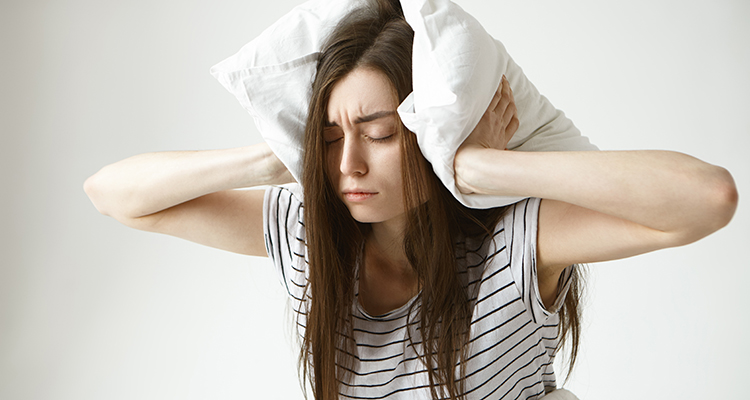
However, either/or is possible.
People with tinnitus often find it challenging, if not impossible to fall peacefully asleep – and stay peacefully asleep throughout the night. When tinnitus (i.e., sounds) keeps you up or wakes you up multiple times during the night, you awaken the next morning feeling groggy, lethargic, irritable, disoriented, confused, achy, anxious, and unmotivated. Studies also suggest that people with tinnitus are more likely to experience sleep issues. In fact, a 2017 study found that approximately 54% of people with tinnitus also suffer from a sleep disorder, like insomnia or sleep apnea.
Researchers suggest that people with tinnitus have an increased risk of experiencing sleep issues like:
- An inability to fall and stay asleep throughout the night
- Inadequate sleep (i.e., not getting enough hours of sleep due to frequent wake-ups, delayed sleep, and/or awakening too early in the mornings)
- Poor quality sleep (i.e., tossing and turning)
- Daytime sleepiness, sluggishness, or grogginess, mental confusion or disorientation, and/or mood swings
Researchers also suggest that not sleeping well or not sleeping at all can worsen the tinnitus in people who already suffer from the condition. In fact, sleep disorders, like insomnia, can exacerbate tinnitus, causing the “noises” or “sounds” to become more pronounced and aggravating. Inadequate sleep can also make managing tinnitus more challenging.
Why Are Tinnitus Sounds More Noticeable at Night When I am Trying to Sleep?
Tinnitus can appear or worsen at night as your body relaxes and everything around you “quiets down.” Why is tinnitus worse at night? Well, because during the day, we are bombarded with external sounds (i.e., construction tools and machines, wind, horns, motors, people talking, barking, etc.) – these “sounds” can block out the internal “sounds” associated with tinnitus. As a result, you may not notice tinnitus noises as much during the day.
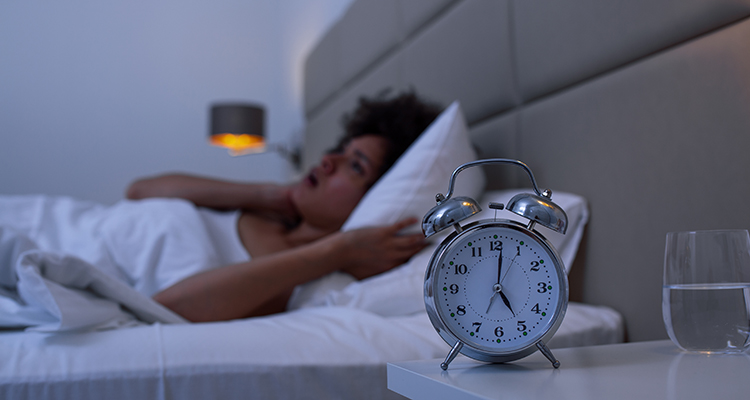
However, once your day starts coming to an end and night begins to approach, you may notice them more, simply because everything is slowing down. In other words, there is nothing to block out the “sounds” anymore. Nighttime tinnitus sounds can prevent you from falling and staying asleep at night. Keep in mind, however, that internal noises are not the only tinnitus symptoms that can keep you awake at night. In fact, tinnitus symptoms, such as aches and pains, stiffness, and head, neck, and jaw muscle tension can also lead to poor sleep quality.
Note: Tinnitus can also lead to daytime grogginess and fatigue, which signals inadequate sleep. When you do not get quality sleep at night, it interrupts your circadian rhythms or sleep/wake cycles (internal clock), making it hard to fall and stay asleep.
Mental health conditions, such as depression, anxiety, and mood swings can also cause you to hear more pronounced tinnitus sounds at night. People, who struggle with mental health issues, can become anxious and frustrated when they are unable to stop the noises in their ear(s). This frustration can lead to high-stress levels, anxiety, and depression – three of the most common causes of sleep disorders, like insomnia.
I Have Anxiety and Tinnitus – Could That Be Triggering or Worsening My Sleep Issues?
Possibly…

According to researchers, anxiety is common in people who suffer from tinnitus. In fact, a 2016 study found that 45% of people with tinnitus will eventually develop an anxiety disorder. More specifically, the constant “sounds” and “noises” can trigger or exacerbate anxiety. It is the inability to stop these “distractions” that sparks nervousness. And, it is the nervousness that prevents you from falling asleep.
For instance, a person with tinnitus may experience anxiety (fear, worry, trepidation, nervousness, etc.) at the mere thought of “going to sleep.” It is this anxiety that causes this person’s mind to race, preventing him or her from sleeping.
The next day, this person awakens feeling sluggish, irritable, confused, disoriented, and unmotivated. That night the cycle repeats. In other words, he or she is unable to sleep because of racing thoughts and fear of being unable to sleep. As the result, once again, he or she is up all night and sluggish or groggy the next morning. It’s a vicious cycle that never seems to end.
Note: The energy expended from anxiety can stimulate your mind and body, making it hard for you to relax and fall asleep. In fact, research indicates that a fear that you will be unable to stop noises and fall asleep can actually increase your heart rate, blood pressure, and body temperature, making you more alert – instead of more relaxed. So, yes, there is a good chance that anxiety and tinnitus are preventing you from getting quality sleep.
I Suffer from Hearing Loss and Tinnitus – Could This Combination Be Causing My Sleep Apnea and Preventing Me from Getting Quality Sleep?
It is quite possible!
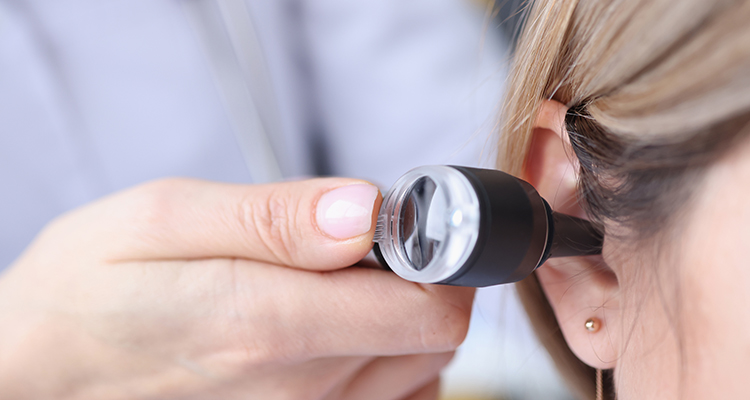
Sleep apnea, hearing loss, and tinnitus appear to be connected. In fact, studies suggest that sleep apnea can trigger or worsen tinnitus sounds and hearing loss, leading to the unintended consequence of sleep issues or insomnia.
And, according to a 2019 study, obstructive sleep apnea appears to be linked to impaired hearing and hearing loss. Impaired hearing or hearing loss typically occurs when the blood flow in one or both of your ears “changes,” leading to inflammation inside of the ear. Researchers have also found that people, who suffer from sleep apnea, are at-risk of high blood pressure, which can worsen tinnitus and/or trigger hearing loss. So, yes, your tinnitus symptoms and hearing loss may be causing your sleep issues.
Note: A partner’s or child’s snoring can also trigger or aggravate tinnitus and if the snoring is extremely loud, it could damage your hearing and/or cause hearing loss. Thus, researchers have concluded that people with tinnitus and hearing loss have an increased risk of also experiencing sleep issues (i.e., sleep apnea, insomnia, and sleep deprivation).
How is Tinnitus-Induced Insomnia Usually Treated?
There is currently no cure for tinnitus, however, more and more studies are being conducted to determine possible root causes of tinnitus-induced insomnia, in the hope of developing more effective treatments for it.

Listed below are current tinnitus-induced insomnia treatments:
- Electrical Stimulation – Electrical transcranial magnetic stimulation of your brain’s auditory centers can help “reboot” your circadian rhythms (internal clock) and “regulate” your sleep-wake cycles.
- Deep Brain Stimulation – Deep brain stimulation reduces tinnitus-related nerve activity, so your mind and body can relax and you can fall asleep.
- Mindfulness Meditation – Experts suggest that mindfulness mediation can ease stress and promote sleep. In fact, a 2017 study found that mindfulness meditation can also help people with tinnitus-induced sleep issues better manage the condition. What does mindfulness meditation involve? Well, in simplest terms, it involves focusing on your breathing (inhaling and exhaling), while in a relaxed state.So, when your mind starts to wander, causing you to focus on other things, such as anxiety from being unable to fall and stay asleep, tinnitus noises, etc., draw your thoughts from them – and refocus on your breathing. Start small – i.e., 5–10-minute sessions. Then, as you become more comfortable with it increase the time you spend meditating until you have a firm grasp on your tinnitus-induced insomnia.
- Guided imagery – The goal of guided imagery is to relax your mind and body by replacing aggravating tinnitus sounds with calming and comforting images. During guided imagery, you are instructed to concentrate on your five senses (touching, seeing, tasting, smelling, and hearing), while you think about positive or healing images, such as walking on the beach with a loved one or going to your county fair with friends. Focus on what you are seeing, tasting or eating, smelling, touching, and hearing while visualizing the scene.
- CBT-i – Cognitive-behavioral therapy for insomnia (CBT-i) can help you “reframe” intrusive thoughts (thoughts that you will not be able to fall and stay asleep), emotions (anxiety or depression because you are unable to fall and stay asleep), and behaviors (staying awake because of a racing mind and loud and/or persistent tinnitus sounds prevent you from getting quality sleep). The goal of CBT-i is to teach you how to distract yourself from irritating tinnitus sounds and replace your “noisy” thoughts, emotions, and behaviors with calmer and more peaceful ones, so you can grab some much-needed zzz.Note: Researchers suggest that CBT-i is highly effective for treating sleep disorders, like insomnia, and various health conditions, such as tinnitus.
- Tinnitus Treatment – If “phantom sounds” have been keeping you awake all night – it is probably time to consult a doctor about them. Why? Because you may be suffering from tinnitus – and if so, you will most likely need tinnitus treatment to stop the “noises” in your ear(s).This is especially important if the “sounds” are accompanied by pain. Tinnitus pain can be mild or severe, dull or sharp, itchy or asymptomatic, temporary or chronic, or continuous or sporadic. Tinnitus sounds, coupled with pain or discomfort, can prevent you from falling asleep and/or awaken you several times at night.
Note: Understand that tinnitus symptoms (i.e., sounds and pains) can be caused by earwax accumulation and/or ear infections.
- Relaxation Techniques – Relaxation techniques, like deep breathing exercises, can help you better manage your tinnitus symptoms, so you can get some much-needed rest. Understand that grappling with tinnitus symptoms, especially tinnitus sounds and pain can trigger anxiety, depression, frustration, and a ton of stress – day and night. One of the most effective ways to manage these symptoms so you can relax is to practice relaxation techniques daily.The goal of deep breathing is to block out tinnitus “noises” by prompting you to focus on something else, such as your breathing habits (inhaling and exhaling). Thus, deep breathing involves slowly breathing in and out to relax your mind and body. So, when your tinnitus symptoms prevent you from falling and staying asleep – (1) inhale for 4-5 seconds, (2) hold your breath for 8-10 seconds, (3) exhale for about 8 seconds, and (4) repeat this exercise as many times as necessary to relax.
Note: According to researchers, relaxation exercises can reduce tinnitus symptoms (in some people), so you can fall asleep easier and stay asleep longer.
Is There Any Other Tool I Can Use to Get Some Sleep?
Yes, actually there is – and it is called Somnus Therapy!

What is Somnus Therapy? Well, it is an insomnia treatment program designed for anyone who has a hard time getting quality sleep. What does that mean for you? It means that the Somnus Therapy program can teach you how to block out tinnitus sounds and pain, so you can finally get some sleep. How? Well, through a wide range of valuable tools, such as audio-recordings, informative articles/blogs, access to CBT-i techniques, a sleep coach, cognitive-restructuring, stimulus control therapy, sleep restriction therapy, mindfulness meditation, etc. Somnus Therapy is a top-notch online program created to give you the relief you have been waiting for!



